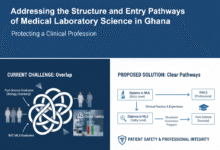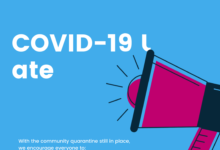On Government Appointees Seeking Healthcare Abroad – Why Doctors Are Partly to Blame

The recent news of Vice President of Ghana, Her Excellency Prof. Naana Jane Opoku-Agyemang traveling abroad for healthcare after a brief admission at the University of Ghana Medical Center has sparked widespread debate. Many are questioning why politically exposed individuals have the luxury of using taxpayers’ money to seek better healthcare abroad rather than fixing the healthcare system in the country.
This, I believe, has been the norm for as long as I can remember. The usual rhetoric is echoed by the opposition, expressing outrage whenever a politician is flown abroad for treatment. Yet, once they assume power, they continue the same trend, conveniently forgetting their previous stance.
However, I do not solely blame politicians, as they always prioritize their own well-being. When Parliament required renovations, the issue was swiftly addressed. Meanwhile, I cringe at the state of many hospital buildings where doctors and other healthcare professionals work. Shockingly, these professionals enter these buildings daily, seemingly unbothered, and some even take pride in mocking junior doctors who are still finding their footing in the noble profession. The first time I saw the Korle Bu Surgical Unit, I vowed never to step inside—it looked as if it could collapse at any moment. Is it any wonder that politicians prefer to seek treatment abroad?
Far too often, doctors go on strike demanding salary increments and better conditions of service. Interestingly, these demands mostly pertain to figures reflected in their monthly paychecks rather than improvements to the environments in which they work. Ironically, politicians twist the narrative, causing the public to blame doctors for abandoning their duties after being trained with taxpayers’ money—though this is not entirely the case.
To curb the issue of politicians seeking healthcare abroad, I believe doctors and other healthcare professionals need to step back and reassess their strategy.
Firstly, doctors—especially their leadership—should not be partisan. Secondly, and most importantly, the next strike action should not be for salary increments. Instead, doctors and other healthcare professionals should strike to push for legislation that bars politically exposed individuals from seeking healthcare abroad. This would achieve two key objectives: improving the working conditions of doctors (since politicians would now have to receive treatment in the same facilities) and justifying higher salaries for medical professionals (as no one wants to be treated by a disgruntled doctor). Voila!
Fortunately, there are doctors in Parliament who can collaborate with their colleagues to push for a private member’s bill addressing this issue. It’s possible it may not materialize in our lifetime, but such a move would undoubtedly make the profession more attractive and safer for all.
Discover more from MedCircles Ghana
Subscribe to get the latest posts sent to your email.





